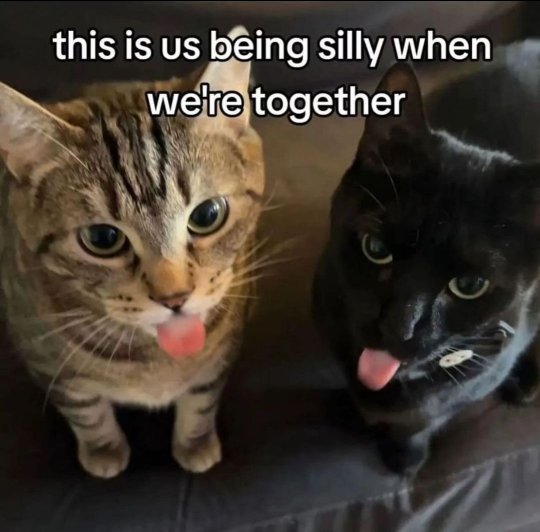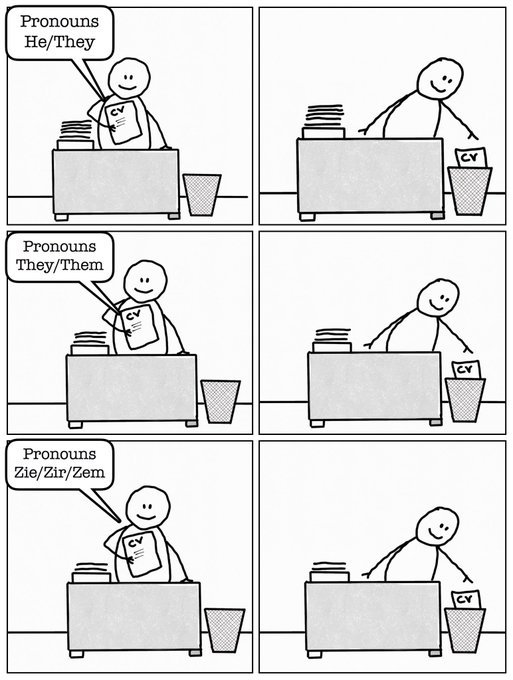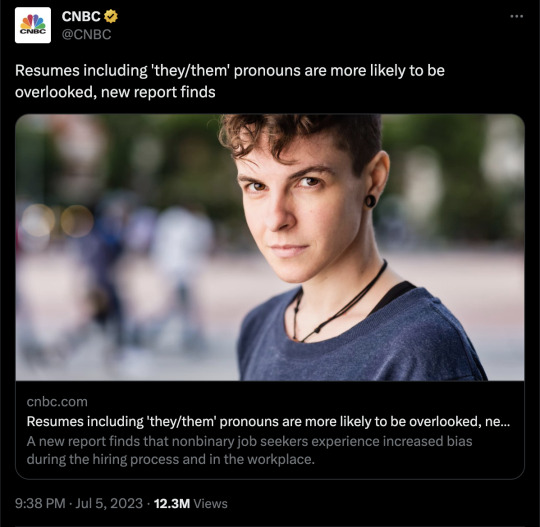Text
I wanna take the term white feminism from all liberal crackers until they learn how to use it properly.
White feminism is not:
Trans/gender critical feminism (implying white trans people are somehow "less white" than their "cis" counterparts)
Prostitution/porn critical feminism (implying women of melanin need these dangerous industries more than other women)
What JK Rowling is doing (just because she happens to be white, also the great Alice Walker agrees with her, so)
What "pick mes" are doing (demeaning oneself for the approval of men is a multicultural activity)
Something white women can speak with any real authority on, because the term was invented by women of melanin intended to observe y'all from over here (freaks claiming it's racist to deny a white person's trans identity because historical third genders existed in a culture they don't belong to)
It is:
Feminism that prioritizes the wants of white females over the needs of all other females
Feminism that worships beauty trends that are often inaccessible to women of melanin
The current state of liberal feminism which confidently claims that I as a non trans black gender critical female hold both racial and gender privilege over white trans people
255 notes
·
View notes
Note
“Why is it when it is a majority women getting cosmetic surgery we condemn it but when it's a movement of majority men we get think pieces of well if they really really need it 🥺”
BARS
so well said
thank you for saying it
Yes exactly!!! One thing I hate about male panderers is how their logic never carries over into other things.
Every issue men get a pass but if it's women there's no nuance.
Obviously, we all agree plastic surgery is wrong but somehow males and trans people get special treatment bc their condition is so so sooo bad guyz.
Idk I hate it. So many people are openly hypocritical.
#radblr#radical feminism#terfblr#terf#gender critical#radfem#radfeminism#gendercritical#terfs interact
1 note
·
View note
Text
Binder company untag.com posts shit like this to deliberately trigger young girls body dysmorphia just so they can sell some more fucking binders
118 notes
·
View notes
Text
Sorry Im rbling this again because seriously. Why is it when it is a majority women getting cosmetic surgery we condemn it but when it's a movement of majority men we get think pieces of well if they really really need it 🥺
to be clear, and this is probably wildly unpopular within the radfem space: I don't care if grown adults decide to medically transition if, and only if, they have had documented, long-lasting dysphoria and have been in therapy for a considerable amount of time. I don't care if grown adults decide to get mastectomy or breast reduction to help alleviate dysphoria if they've been in therapy for a considerable amount of time and are told the risks.
There's a difference between minors getting these surgeries and adults getting them. By calling females who have gotten a mastectomy "mutilated", you aren't only insulting transsexual people.
To all the women who have gotten a mastectomy and regretted it, you are not mutilated. To all the women who have gotten a mastectomy and not regretted it, you are not mutilated. You are all beautiful and strong.
144 notes
·
View notes
Text
Sorry Im rbling this again because seriously. Why is it when it is a majority women getting cosmetic surgery we condemn it but when it's a movement of majority men we get think pieces of well if they really really need it 🥺
to be clear, and this is probably wildly unpopular within the radfem space: I don't care if grown adults decide to medically transition if, and only if, they have had documented, long-lasting dysphoria and have been in therapy for a considerable amount of time. I don't care if grown adults decide to get mastectomy or breast reduction to help alleviate dysphoria if they've been in therapy for a considerable amount of time and are told the risks.
There's a difference between minors getting these surgeries and adults getting them. By calling females who have gotten a mastectomy "mutilated", you aren't only insulting transsexual people.
To all the women who have gotten a mastectomy and regretted it, you are not mutilated. To all the women who have gotten a mastectomy and not regretted it, you are not mutilated. You are all beautiful and strong.
144 notes
·
View notes
Text
I agree OP as long as we start having the same standards for those with Body Integrity Disorder. If transition is an acceptable thing to allow, then so should those who feel they have an alien limb. Or even thise with body dysmorphia in general, those who stuggle with their weight or looks. If we want to medicalize plastic surgery like this, stop acting hypocritical and as if transgenderism is the only exception.
to be clear, and this is probably wildly unpopular within the radfem space: I don't care if grown adults decide to medically transition if, and only if, they have had documented, long-lasting dysphoria and have been in therapy for a considerable amount of time. I don't care if grown adults decide to get mastectomy or breast reduction to help alleviate dysphoria if they've been in therapy for a considerable amount of time and are told the risks.
There's a difference between minors getting these surgeries and adults getting them. By calling females who have gotten a mastectomy "mutilated", you aren't only insulting transsexual people.
To all the women who have gotten a mastectomy and regretted it, you are not mutilated. To all the women who have gotten a mastectomy and not regretted it, you are not mutilated. You are all beautiful and strong.
#Annoying how its only ever males who want their dicks chopped off who get treated as if#their body issues and plastic surgeries are so so soo serious#like please
144 notes
·
View notes
Text
Rebecca Myers has dedicated her life to trying to change the most brutal of Britain’s serial rapists and abusers. When people hear that, they always want her to reveal the “worst” thing she has heard.
Go on, they say, as though it’s an episode of The Killing or CSI. Myers, who is a forensic psychologist working with deviant criminals, will give away a few things, such as the fact that she can’t look at a table knife casually left in the butter over breakfast after her prison housed a man who stabbed his girlfriend in the bath and left the knife behind, stuck in. Or that the theme tune to Coronation Street gives her chills. One of her first cases was a man who went on a three-year raping spree, breaking into the homes of single women while wearing an animal mask. On one occasion he hid behind the sofa of his next victim in his terrifying costume as she, oblivious and happy, watched her favourite soap opera.
The actual worst thing? She won’t tell me that — she is scared it will contaminate me too. “I have never told a soul, and never will.” That’s her job, to suffer so that others don’t, to save other women.
One of the worst things she has heard wasn’t exactly a crime. It was after a lifetime of getting into the heads of these men through a gruelling and expensive rehabilitation programme for sex offenders that thousands of male prisoners in this country undertook over a two-decade period, at a taxpayer cost of an estimated £100 million. She personally started working with the Sex Offender Treatment Programme (SOTP) when she was 22, soon after she joined one of Britain’s most notorious prisons, known for the number of inmates convicted for sexual or violent offences. She worked with them, including the mask-wearing rapist, out of idealism and trust.
Then, in 2017, after Myers had spent 16 years on the front line of the SOTP, the results of a national evaluation came in. The SOTP didn’t work. It was abruptly abandoned. She had spent so long attempting to change people who had done horrible things, and when they were released they went out and did them again at just the same rate as the men who hadn’t attempted any change.
“It was gutting,” Myers, now 49, says to me. “Just shocking. A massive disappointment to so many people that had invested decades of their lives, totally and utterly driven by wanting to stop these people from doing it again.”
The worst thing she has heard was not a murder. It was this news that seemed to kill hope. The costs, emotional and financial, hadn’t been worth it. Her memoir Inside Job gives the reader an authentic account of what it is like to work with maximum-security prisoners, including when a headless pigeon is lobbed at her from one of the cells (ripped off with the man’s teeth?), splattering her shoes with blood. “Whore!” the prisoner shouts as Myers stares at the pigeon’s still-flapping body, its spinal cord protruding. “Slut!”
She will never know who did it, whether it was because she gave them an unfavourable parole recommendation or it was just a man who hates women. “There are plenty of them about.”
When I meet Myers over Zoom I can tell how she holds her own as one of the few women in such a hostile environment. She speaks in the North Yorkshire accent of her home town with seriousness and common sense. She began in prisons months after graduating from a psychology degree. She was, she describes, “slim and blonde”, and understandably naive. She was given a tour of the prison officers’ quarters, with pictures of topless women on the walls, their breasts covered with NSPCC stickers.
Sinister disembodied eyes press against each cell’s viewing holes as she passes. “I wish I had not worn a skirt,” she writes, and she never made that mistake again, switching for ever to work in a baggy outfit of loose trousers and poloneck covered up by a jacket, even in summer. “My face and hands are the only flesh I allow them to see.” Her psychological armour in prison is represented by her perfect nail polish, which she wears to see me too.
We agree that it seems strange, with hindsight, to think that such a young woman was the right fit for the job. Myers explains that forensic psychologists are not usually like Robbie Coltrane in Cracker — in the UK 80 per cent of them are female. In the 1990s money flooded into prison rehabilitation programmes with a surge of Blairite optimism. Britain’s sex offender rehab became an international flagship, she says. In practice, that meant an “influx of fresh young female psychologists straight out of university entering the prison to deliver programmes”.
“It’s an interesting notion isn’t it?” Myers says, pondering. “The damage is done to women yet it is mostly women trying to fix it.”
The Silence of the Lambs, featuring Jodie Foster as a student psychologist at the FBI Academy trying to outsmart Hannibal Lecter was how some of Myers’ friends conceived of her job. “It was the cool thing at the time,” she tells me. “But now I completely steer away from anything of that nature. I find crime on TV distasteful. I worry about it being glamorised. It’s as far from glamorous as you can get.
“Clarice Starling I am not,” she writes in her book. “Real-life serial killers are far less exciting and more stubborn and smelly than those portrayed in the films.”
Almost immediately she was left alone with them in unguarded rooms. “In terms of how things are portrayed on television, that is one of the biggest misconceptions,” she says. “That the men would be handcuffed, that there would be officers there. There simply weren’t. You were left on your own. I was surprised at the time.”
Was that because it was considered low risk? “I don’t think it’s low risk. In the book I describe a hostage situation with a female prison officer.”
This hostage-taking goes on for 12 hours, the “decent, kind-hearted” woman held at knifepoint in a cell by a man who had been a serial rapist of elderly women in their homes. Myers is rushed to the scene in the middle of the night and helps to assess the man as highly unlikely to surrender. The officers charge in when he begins an assault on the prison officer. “So it’s not low risk,” she says. “You never turn your back. But I didn’t question it, I just followed the culture.”
The book follows closely her first treatment group of sex offenders, including the masked rapist she names “Wayne” in the book. She is not allowed to name the prison for legal reasons, and she blurs identifying details for the sake of the victims’ families. When she first reads through Wayne’s crimes she has to vomit in the toilets. In person, though, he presents as a polite, even endearing man who likes custard creams dunked in his tea. This is a hard lesson society is still learning: sex offenders are husbands, dads, people holding down respectable jobs. Even police officers, as the Sarah Everard case showed.
Each psychologist was paired with a prison officer or two for the treatment programme, which took groups of nine men through more than 200 hours of therapy that lasted up to a year. In a twist that makes her book seem even more like a Jed Mercurio TV drama, a young Myers falls in love with the prison officer she is paired with on her first treatment programme. It’s an ill-advised romance that begins and ends in the dark hours they spend debriefing each other on what they have heard about the rape and torture of women.
It’s wrong to say the treatment had no effect, because it certainly affected the staff. Myers is covert about her personal life, but she has two children and is often talked out of overprotective parenting by her husband, who does not work in the same world. “He says: ‘It’s fine, they’re going to be OK.’ ”
A serial killer once made a joke to her about picnic blankets, how they are useful to roll up bodies. She is for ever sent into high alert by lone male picnickers. The two male prison officers she worked with are mentally scarred too. One stopped being able to give his little daughter a bath. The other, then her boyfriend, couldn’t drive past a lone woman on the street without fretting over her safety. The pair would wake up together after “murder dreams”.
One core aspect of the SOTP was trying to awaken empathy with victims, to the extent of asking the perpetrators to re-enact their crimes from the victim’s point of view. They’d use pens in place of penises, and flick water instead of urine, blood or semen. It sounds like highly risky territory. Indeed, in that first group Myers is aware that one of the criminals is becoming sexually aroused by the re-enactment.
“They were very powerful, but I think they also had the potential to be shaming, difficult and potentially dangerous,” Myers says of the exercises. “We started to see from the research that an increase in victim empathy didn’t necessarily decrease recidivism.” She spent more than 200 hours with one man who was in jail after a rape and hammer attack. He told her all the right things, and she marked him down as a success. Later she saw the man on the news, convicted of a rape and hammer attack.
“I don’t know what the answer is to stopping male violence. I wish I did,” she says.
It is a minority of released sex offenders who reoffend, but each one feels like too many. The sex offender rehabilitation schemes that replaced the SOTP have yet to be evaluated. Myers is no longer involved in frontline treatment. This gets us to the question that hangs over this book. Does she despair? Why not just give up?
“No, because we can’t just do nothing. We don’t have the death penalty, we release people. We’ve got to carry on.
“I know the research showed what it showed, but I like to believe that I have averted crimes. I have to believe that over the last 25 years I have made a difference. I have to believe that or I couldn’t keep doing it.”
That gives meaning to your life? She sets her face with determination.
“Absolutely. I do believe that people can change,” she says. She can never know a woman she saved from being attacked, she says. It could be me, it could be her even, but she hopes they exist, and this hope is the best thing about her job — which, by the way, is a question few ask. “I can’t think of anything more worthwhile.”
Inside Job: Treating Murderers and Sex Offenders. The Life of a Prison Psychologist by Dr Rebecca Myers is published by HarperCollins, £8.99
2K notes
·
View notes
Text
~queer~ tumblr users: we should simply demand that men stop treating women as subhuman. any attempt to keep women safe from male violence implicitly suggests that male violence is inevitable and unchangeable.
also ~queer~ tumblr users: gay people will always be seen as disgusting pervert freaks. there's absolutely no way that we as a society can grow beyond this, so the only way to protect the rights of gay people is to also protect the rights of actual sex criminals. if you object to this line of thinking you're just an assimilationist (unlike me, the person literally agreeing with right-wingers that gay people are sexual deviants)
59 notes
·
View notes
Text
i love it when a obviously radfem post makes the rounds and either of these things happen
1) OP goes "terfs dni" without questioning why it is the evil terven would interact with the post to begin with. perhaps the real terf was inside OP all along
2) someone other than OP goes "OP is a terf". like, yeah. yeah. obviously. who do you think goes around writing about female oppression.
it's almost like you agree with us except for when precious trans identified males come into question, then your cognitive dissonance kicks in
274 notes
·
View notes
Note
jesus your blog is rancit. Thank you for the blocklist
You'll never see this anyway, so


These are pics of 2 geese I saw outside my local RiteAid yesterday.
They also were Terfs bc I said so ♡
9 notes
·
View notes
Text
hating furries is just a silencer on the gun that is hating on lgbt+ tbh
58K notes
·
View notes
Text

Remember, the most important thing when seeking help for your sexual assault is that people can’t *like* the way you were sexually assaulted.
373 notes
·
View notes
Note
Let's take cyanide together <3
Not to trauma dump, but this is what me and my exbff who had a suicide pact with me would say to each other all the time, so ♡♡♡ how ironic I see this right when I was thinking abt her lmao.
0 notes




